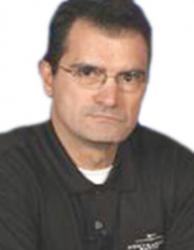FBI wiretaps, federal investigators, subpoenas, guilty verdicts and plea bargains. Mix all that with college basketball recruiting and you have a colossal problem that could take down big-name coaches and programs and further scar the NCAA.
Act one, year one, of the FBI probe resulted in several convictions of assistant coaches, former agent runner Christian Dawkins and two Adidas executives. In the wake of all the allegations and headlines, legendary Louisville coach Rick Pitino was fired and current Arizona coach Sean Miller became a person of extreme interest.
Act two, year two, and now LSU head basketball coach Will Wade finds himself at the epicenter of the federal investigation into illegal payments and corruption in college hoops.
Wade, the boyish-looking second-year Tigers head coach, is entangled in a very complex case that not only involves the obviously taboo payments to lure top recruits, but also things like conspiracy, wire and mail fraud.
I’ve been covering college sports in some form for more than 30 years, and we are now heading into uncharted waters. Wade and Miller have been subpoenaed to testify under oath about recruiting and dealings with agents and shoe companies.
That’s unprecedented in the long history of college athletics.
The media and fans can’t wait for possible incendiary details to come from Wade and Miller’s testimony. The NCAA, and schools like LSU and Arizona, the two in the cross hairs right now, cringe at the thought of their coaches answering all sorts of questions in open court before a federal judge.
Look, I get confused about the difference between habeas corpus and Corpus Christi, so I don’t pretend to play an attorney on TV or on my laptop. In an attempt to figure out the complexities, legalese and what’s ahead for Wade, I reached out to one of the state’s top defense lawyers: Walt Sanchez, of the Sanchez Law Firm here in Lake Charles, for some expert opinions and insight.
Let’s begin with Wade being subpoenaed by the defense attorney for Dawkins to appear in court on April 22 in New York. It’s big news on its own because it’s not like sitting down and talking to NCAA suits. Wade will be under the threat of perjury while answering questions.
But Sanchez says it’s better for Wade to be subpoenaed by the defense than by federal prosecutors. “Subpoenas are much better to receive than a target letter because if you get a target letter then you know you are firmly in the government’s cross hairs,” Sanchez said.
“That doesn’t mean given the way the federal government works [Wade] is out of the woods. These kinds of cases get built over long periods, and the government’s basic approach is they work very slowly and carefully over long periods and put together lots of indictments for information. And it’s not uncommon for them to let it age for a while.”
LSU and anyone who bleeds purple and gold are wondering if Wade will be asked under oath if he engaged in illegal payments or made offers of payments to prospective basketball recruits, as it surely sounds like he did on those FBI wiretap tapes on which he’s talking to Dawkins about freshman guard Javonte Smart.
“If he is asked questions that the answers tend to incriminate him, then he would have the right to assert the Fifth Amendment. If his lawyer allows him to get on the stand to answer certain questions to some extent; answer questions by the defense; and is cross-examined on those same issues by the prosecution and asserts the Fifth Amendment on one side of the issue but not the other, the judge may make a decision that [Wade] has waved that aspect of it and order him to testify,” Sanchez opined.
I did mention this is a very complex investigation, with some areas difficult to explain — like the preceding point. But Sanchez added some clarification.
“I would expect that any good criminal defense lawyer representing a witness who has been subpoenaed in a case of this complexity and seriousness is not going to let him answer the first questions much less the second set of questions.”
So if asked directly about the wiretap conversations and whether he approved payments and actually executed deals with players to get them to sign at LSU, Wade can refuse to answer on the grounds of self-incrimination.
It was a bit curious that Wade chose not to meet or talk with LSU president F. King Alexander and athletic director Joe Alleva about the wiretaps and offer some form of explanation. But in fact, Sanchez said, Wade really had no other choice. “I think that was the only prudent position anyone could take because anything he or his representatives say to LSU is not covered by any kind of a privilege (namely, a client-attorney confidentially). So I think the kind of statements that he wants to come back and coach and things along those lines makes perfect sense,” Sanchez explained.
In layman’s terms, if Wade tried to explain to Alexander and Alleva what he said and meant on those FBI taped conversations, his words and explanations could be used against him if the Feds decided to question those LSU officials.
If you look at the federal probe into college basketball recruiting so far, it has not involved a significant amount of money through alleged payments to players or to schools from agents or shoe companies like Adidas.
Former Auburn assistant coach Chuck Person recently changed his plea to guilty for accepting upwards of $100,000 in bribes to steer players to certain agents. That’s a lot of money — don’t get me wrong. But in the grand landscape that is college basketball, it’s pocket change compared to the millions these Power Five programs generate and the billions garnered by the NCAA from national televisions rights and merchandising.
Sanchez cautioned that people should not get caught up in the exact dollar figures involved. Instead, the heart of the case is how and by what means these alleged deals took place.
Remember the FBI didn’t arrest Al Capone for murder. They convicted him for tax invasion.
“It’s not so much a matter of how much money is involved. But it depends on how this information was communicated. Were there phone calls, emails, use of interstate communications to convey information which may or may not be completely accurate? So you get into mail fraud and wire fraud. The amount of money may not be the issue covered by the federal statutes. If you are a federal lawyer, you are not just looking at the amount of money; you are looking at all of the tools that are available to the federal government,” Sanchez pointed out.
Sanchez drew an analogy between college player payments and the recent celebrity scandal of cheating and making payments to get students into various elite schools around the country. It’s not just who got paid and how much. “There are a lot of different statues the federal government can use to prosecute that go beyond simply, ‘Here’s some money. Come to my school.’ or ‘Here’s some money. Let me into your school.’ The general advice for someone who is representing someone caught up in an investigation of this kind is to move very slowly. Say very little. And gather as much information as possible before you make a decision.”
Wade seems to be following this strategy of saying very little. In his first written statement, the 36-year-old coach asked the public to hold off judging him until all the facts and the complete story are out. In a second prepared statement, Wade asked LSU to lift his indefinite suspension and allow him to return to coaching the Tigers, who are now preparing for the NCAA Tournament.
“Declining to be interviewed was a difficult decision for me, as I would like to cooperate fully with all parties, particularly LSU. To be clear, however, all I’ve done is follow the prudent advice of counsel to exercise my constitutional rights to due process. Given these facts, I don’t believe it is appropriate for me to be relieved of my duties,” Wade wrote in a long, prepared statement.
Sanchez believes Wade has gone about as far as he can go publicly without stretching his neck out too far, given that he does not know the extent of the federal probe, the FBI wiretaps and where he fits into the overall investigation of wrongdoing.
“The fact that he wants to coach is not a surprise to anyone. And what he is basically saying is, I have not done anything wrong, no one has proved anything, so let me go back to coaching. That’s all fine. He is not sitting down and answering factual questions regarding the circumstances of his suspension. That’s where you draw the line,” Sanchez said.
Up to this point, the released FBI wiretaps dating back to last fall, with Wade talking to Dawkins about 7-foot recruit Balsa Koprivica, and the latest tapes about making a “strong ass offer” to Javonte Smart, look very damning for the LSU coach.
His suspension by LSU just before the now completed SEC Tournament and the national media attention over Wade missing the NCAA Tournament makes him look guilty in the court of public opinion.
The belief is Wade was not a target of the FBI in their probe, which centered on Dawkins and his dealings with several schools. Wade was an added bonus and collateral damage once the feds had him on wiretaps going on about payments, offers and his frustration over the delay in securing Smart.
The FBI threw out a widely cast net and snared a pretty big fish.
Last October, Wade told reporters at SEC media day that he has “never, ever done business of any kind with Christian Dawkins.”
These wiretaps tell a different story.
If he pleads the Fifth on the stand in late April in New York, then it will appear Wade has much to hide. If he unveils the truth of questionable or illegal incentives to recruits, then he could be facing criminal charges and, of course, being fired by LSU for cause.
LSU would then be facing an NCAA infractions investigation, and the marvelous season, the SEC regular season championship and the appearance in the NCAA Tournament would be tainted to say the least.
Sanchez says in a complex case like this, an attorney’s advice would be to “walk like an innocent man” but stay out of the public eye.
“If I had a client in this case, I’m a bit more old school; I’ve never given an interview or recommended a client give any statement in any case in the last 35 years. It’s a terrible mistake. Most people think they can shape a message in the media. But I think most lawyers who handle that on an infrequent basis do a pretty poor job of it. So I think [the thing for Wade] is to say as little as possible and even [skip the] protestations of innocence,” says Sanchez.
LSU officials are doing what they have to do to protect and insulate the university from further fallout by keeping Wade on indefinite suspension.
Amid the anticipation and celebration over the Tigers’ No. 3 seeding in the NCAA East Region, the players, including Smart, are working to stay focused under interim head coach Tony Benford, whom no one really knew about until the wiretaps and allegations hit the proverbial fan.
Wade, a rising star in the coaching ranks even before he took the LSU position two years ago, is fighting for his reputation and coaching life.
For the next few months, he will be spending all of his time preparing to be in court instead of on one.
Rick Sarro’s perspectives and commentary can be heard on Soundoff 60 Monday through Sunday evenings at 9 pm broadcast on channel 4 on Suddenlink.
















Comments are closed.